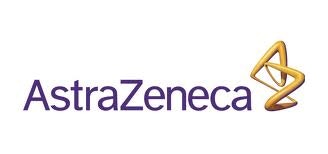Recently, AstraZeneca plc (ADR) (NYSE:AZN) announced that it has agreed to acquire Pearl Therapeutics, the respiratory drug manufacturer, in a transaction worth around $1.15 billion. Since the beginning of the year, AstraZeneca plc (ADR) (NYSE:AZN) has gained more than 8%, lagging the S&P 500’s return of more than 14.7%. Is AstraZeneca plc (ADR) (NYSE:AZN) a good buy after its recent acquisition? Let’s find out.
Synergy between AstraZeneca plc (ADR) (NYSE:AZN) and Pearl Therapeutics
AstraZeneca plc (ADR) (NYSE:AZN) is considered a big player in the cardiovascular field, generating more than $9.53 billion, or 34% of total revenue in 2012. It also derived a significant portion of its top line from respiratory & inflammation products to the tune of $4.4 billion, accounting for 14.8% of total sales in 2012. Its iconic brand in Respiratory & inflammation segment is Symbicort, producing nearly $3.2 billion in sales.
The acquisition of the privately-held Pearl Therapeutics would give AstraZeneca plc (ADR) (NYSE:AZN) exposure to the treatment of chronic obstructive pulmonary disease (COPD), which is in late-stage development. AstraZeneca CEO Pascal Soriot felt excited about this acquisition. He said: “Chronic obstructive pulmonary disease continues to increase worldwide and there is a growing need for the next generation of inhaled combination products. Pearl’s novel formulation technology, together with its development products and specialist expertise are a great complement to AstraZeneca’s long-established capabilities in respiratory disease, one of our core therapy areas.”
He strongly believes that Pearl Therapeutics would give AstraZeneca various treatment options, strengthening the company’s respiratory portfolio. Interestingly, AstraZeneca only has to pay $560 million on completion, and the remaining $450 million would be paid if certain development milestones are achieved.
AstraZeneca expects a sharp fall in both sales and profit in 2013, but the long-term should be brighter with the ongoing business restructuring under the leadership of new CEO Pascal Soriot. He has decided to suspend share buybacks and dividend increases to reserve cash for acquisitions and in-house R&D, which would boost the company’s long-term prospects. The market values AstraZeneca at only 9.9 times its forward earnings.
The cheapest but paying the highest dividend yield
Compared to its peers GlaxoSmithKline plc (ADR) (NYSE:GSK) and Novartis AG (ADR) (NYSE:NVS), AstraZeneca is much cheaper. GlaxoSmithKline plc (ADR) (NYSE:GSK) is trading at around $52.80 per share with a total market cap of nearly $128 billion. The market values GlaxoSmithKline plc (ADR) (NYSE:GSK) at a higher valuation at 12.3 times its forward earnings. In the beginning of May, it announced that its product, BREO ELLIPTA, had received FDA approval to treat patients with chronic obstructive pulmonary disease.
This product is the result of the collaboration between GlaxoSmithKline plc (ADR) (NYSE:GSK) and Theravance Inc (NASDAQ:THRX). According to the company, BREO ELLIPTA supports patients to breathe and minimize the risk of exacerbations. Looking forward, GlaxoSmithKline plc (ADR) (NYSE:GSK) estimates that it could grow its core EPS by 3%-4% CER (constant exchange rate).
Novartis AG (ADR) (NYSE:NVS), at $72.80 per share, is worth more than $178.8 billion on the market. The market values Novartis the most expensively at 13.45 times its forward earnings. Novartis AG (ADR) (NYSE:NVS) also has been seeking FDA approval for its once-daily COPD products. Several studieshave suggested the strength of Novartis AG (ADR) (NYSE:NVS)’ COPD products, including improving patients’ lung function and less exacerbation.
Tim Wright, the head of development commented: “The expanding Novartis COPD portfolio brings us another step closer to meeting the unmet needs of millions of patients worldwide.” For the full year 2013, Novartis AG (ADR) (NYSE:NVS) expects that its net revenue would be in line with 2012 CER, even after including $3.5 billion from generic competition. Its CER core operating income was estimated to decline in mid-single digits in 2013.
AstraZeneca pays investors the juiciest dividend yield of as high has 7.5%. GlaxoSmithKline plc (ADR) (NYSE:GSK) ranks second with 4.2% dividend yield, while the dividend yield of Novartis AG (ADR) (NYSE:NVS) is around 3.5%.
My Foolish take
AstraZeneca, under new leadership, should deliver decent operating results after its business restructure. With the juiciest dividend yield and the relatively lowest valuation, AstraZeneca seems to be a decent buy for long-term investors.
Anh HOANG has no position in any stocks mentioned. The Motley Fool has no position in any of the stocks mentioned. Anh is a member of The Motley Fool Blog Network — entries represent the personal opinion of the blogger and are not formally edited.
The article A Big Pharma Company With a Juicy Dividend Yield and Low Valuation originally appeared on Fool.com is written by Anh HOANG.
Copyright © 1995 – 2013 The Motley Fool, LLC. All rights reserved. The Motley Fool has a disclosure policy.



